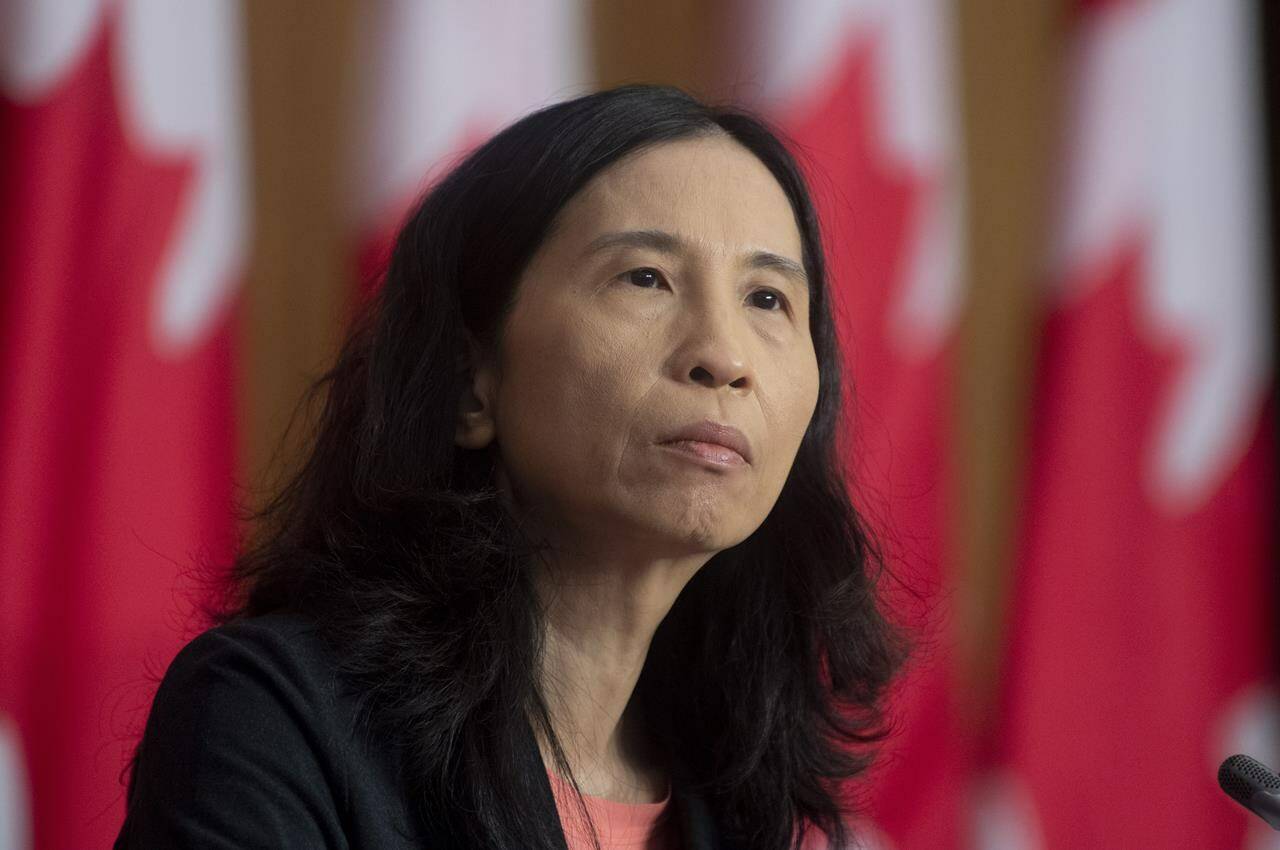Canada’s chief public health officer shot a dose of optimism into the fight against COVID-19 Friday, saying measures introduced to stem the worst of the spread in Saskatchewan and Alberta appear to be working.
And while Dr. Theresa Tam said she’s encouraged by how more people there are choosing to get vaccinated, her message to the provinces was clear: “You still cannot rely on the vaccinations alone at this point.”
Her comments came as the Public Health Agency of Canada released new modelling showing an average of more than 3,700 new daily cases being reported across Canada this week — a far better situation compared to the more than 8,500 daily cases the country was initially projected to hit by mid-September.
The more transmissible Delta variant, which has caused more people to fall ill, sending them into hospital and intensive care units, has been the country’s latest enemy in its 19-month battle against the pandemic.
Nationally, Tam said, cases have started levelling off as more people get vaccinated and after public health measures were reintroduced in August and September to slow transmission.
It’s the first time since July where the pandemic does not appear to be in a growth pattern for the country, she said. “The curve is just bending.”
Although Canada’s national struggle against COVID-19 is looking up, provinces are still immersed in their own challenges. Public Health Agency data shows those hit hardest were ones that eliminated rules on mask wearing and gathering sizes too quickly, while not enough of the population was fully vaccinated against COVID-19.
Alberta, followed by Saskatchewan, boasts the highest rate of active cases out of all the provinces. Officials in both places have spent the past several weeks trying to shore up hospital resources and introducing vaccine passport programs in hopes of incentivizing those not yet immunized to roll up their sleeves.
“I guess time will tell as to whether individual provinces have learned from the fourth wave while the vaccine … coverage is increasing,” Tam said on Friday. “You can’t just rely on the vaccinations alone.”
Heading into Thanksgiving, Tam and Dr. Howard Njoo, deputy chief public health officer, advised people to only gather indoors with family members and friends who have been fully vaccinated and even then try opening a window to improve ventilation.
They recommend those who are not immunized to stick to gathering with their own household and consider moving outdoors.
People should ask their guests whether they have been vaccinated and “take that into account,” Tam said, acknowledging that may feel difficult.
Both Tam and Njoo shared a bit of their personal plans for the holiday, with Tam saying she doesn’t have firm plans to gather in person but could with her fully vaccinated parents and Njoo planning for a small gathering, where those going are immunized.
“I’ve had conversations with friends who are having a tougher time with especially members of their family who are not vaccinated at all or are only partially vaccinated,” Njoo added.
“Let’s say it’s a family member who is not vaccinated, you should politely explain your situation and your discomfort level and if they choose not to be vaccinated that’s their choice, but there are consequences in terms of even family dynamics and others feeling safe about getting together.”
Tam said it’s promising to see more than 80 per cent of Canadians eligible to receive a shot be fully vaccinated against COVID-19, however, there are still some six million eligible Canadians who are not properly immunized.
The health agency’s modelling warns Canada faces the risk of another COVID-19 surge later in the fall and winter if “basic protective measures” like masking and physical distancing are not maintained while vaccination rates are not higher.
“It is important to stress that even as the fourth wave recedes, COVID-19 is unlikely to disappear entirely and there could continue to be bumps along the way,” Tam said.
—Stephanie Taylor, The Canadian Press
RELATED: Mask rule going beyond school for B.C. kids aged 5 and up
RELATED: Northeastern B.C. MLA says ‘Alberta influence’ an issue in vaccination efforts

